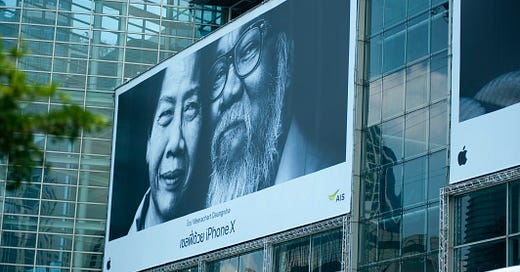The marketing campaign is dead
And why the calendar is a better framing of modern creative marketing
The campaign is how we think about marketing. That’s the mental model most of us have. It’s how the subject is taught in business schools, how the function itself is framed. A great advertisement or creative is part of a campaign, or is the campaign itself. And a common question not necessarily mouthed, but which everyone wants to ask of creative marketers is: What campaigns of yours have done well or have captured attention in the last year?
It’s a stupid question, and it’s stupid framing. The marketing campaign is dead.
I first wrote about this in an essay I wrote in March last year, about how the internet is upending the advertising agency model:
"..the internet has democratised both production and distribution. There are more markets for different kinds of things. And all of these things are advertised differently: On Instagram, on Twitter, on dedicated websites, on streaming platforms, on podcasts, and so on.
To natively advertise for specific consumer segments on these platforms, you need different kinds of talent, and an innate understanding of the platforms themselves. You need influencers and taste-makers; you need specialisation of a sort that is still finding its feet. Even at the edges of this shift, everything is not clear yet."
I was focusing on talent then, on how the new world, in which brands are expected to be 'always on', needed specific kinds of marketing and marketers.
But I’ve since realised that companies are still far away from understanding this expectation and the marketing work it entails. We lack the vocabulary for this way of marketing and this is hurting brands and marketing careers.
Which is why I’m arguing that we should stop framing marketing in terms of campaigns. I think the best structuring of modern creative marketing is that of a calendar.
Why do I say that?
Consider this anecdote from David Perell’s short essay The Never-Ending Now:
I once attended a comedy show with a group of friends. Since the venue was across town, we split an SUV. I sat in the back.
From the moment the driver hit the gas pedal, everybody was on their phones. From the back row, I watched my friends scroll their social media feeds with ferocious intensity. One thing stuck out: the people in front of me only consumed content created within the last 24 hours.
No exceptions.
I succumb to the same impulse. Chances are, so do you.
The structure of our social media feeds place us in a Never-Ending Now. Like hamsters running on a wheel, we live in an endless cycle of ephemeral content consumption..
Perell wrote this as a critique of the way we are consuming news and social media now. But as a marketer, what I immediately saw was what this means to marketing.
First, customers are now online 24x7. They are reading, viewing, and responding to stuff continually. Anything more than 24 hours old is irrelevant. Second, social media and companies’ presence on it means that the expectation is that of an always-on brand, available to engage with all the time.
The combined effect is that out-of-sight is now definitely out-of-mind. There’s so much competition for attention and screen time that for brands to stay relevant, there needs to be constant buzz and repeated signalling. This can be achieved by buying up screen space and running ads, but that’s not sustainable. You need an organic content machine that churns out constant, continuous creativity.
You can see that in the way Dunzo does it, the creative team churning out great content rapidly and repeatedly. You can see that in Rocketlane's constant creation of new content for their target customer.
And how can you make sure that there’s always enough content to be pushed out, so that your brand stays in the discussion?
With something content marketing teams have always known: a calendar. But to have a clear content calendar, you need to understand your audience, build a great creative team, work on content months in advance, and have a clear idea of how all this fits into your larger marketing strategy.
See how framing modern marketing as a calendar immediately clarifies, or forces you to clarify, a bunch of things. Exactly.
So are campaigns dead?
No. I believe they will become part of the calendar themselves, in that they are assimilated into the routine of a marketing team, where a campaign is a slightly larger activity that is strategically and tactically linked to all the other content being put out. That's how it will be effective in building the brand.
And finally, this means that the content team becomes more and more important within the marketing function, moving towards becoming the central part of brand-building.
The age of the content brand is upon us.
For other functions, the equivalent of campaigns or an earlier style of functioning, is initiatives.
I hate that word.
A common and stupid appraisal question: What initiatives have you led or launched in the last year? It’s the same thing as asking a creative marketer: What campaigns of yours have done well in the last year?
Both questions are not aimed at fulfilling the customer’s needs or aspirations. They just aim to condense all the work done in the year to a bunch of statistics that make sense to management.
You have to resist this, but not because it under-appreciates your work. You have to resist this because it will soon undermine the company culture. What results will be a company that’s constantly launching needless new initiatives because that’s what management wants. The customers and their problems will eventually get left behind, and then so will you.



